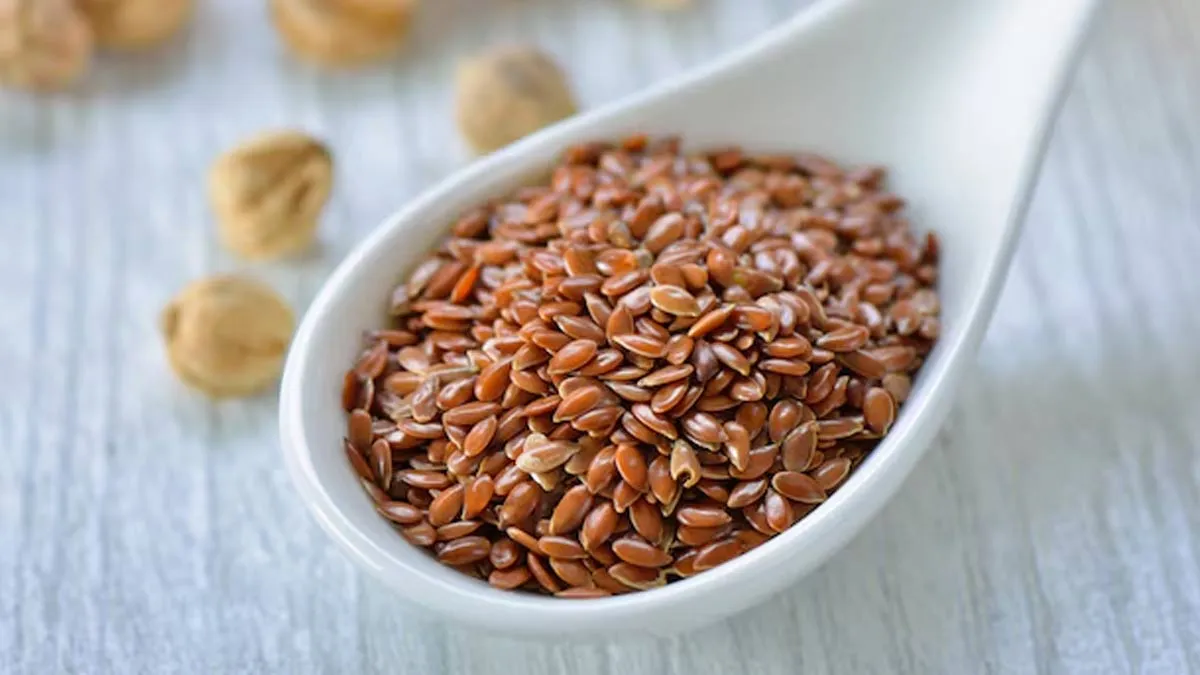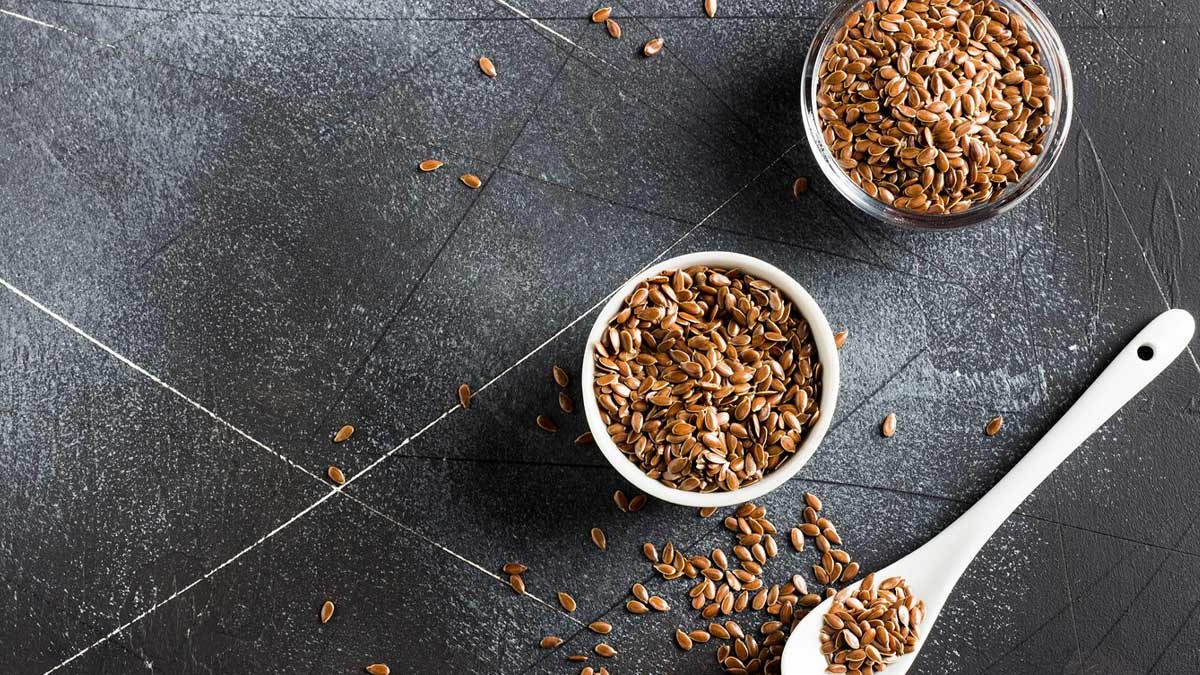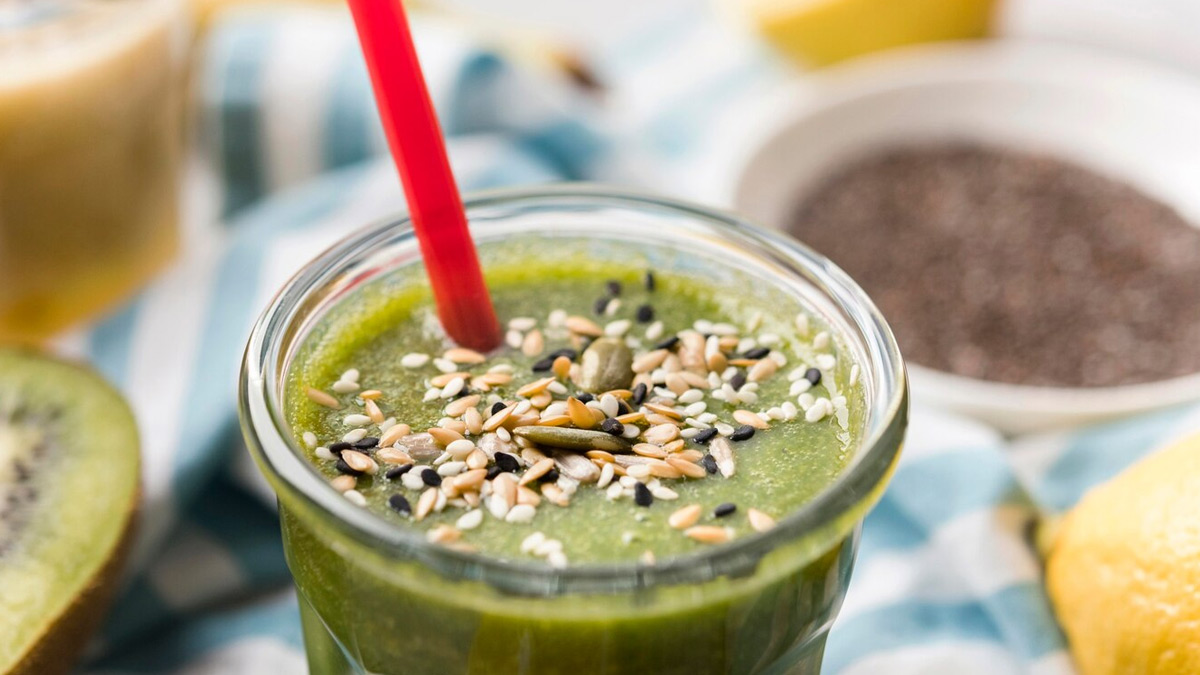
Have you ever found yourself staring at that pack of flax seeds in your kitchen, wondering, "Do I need to roast or grind these or can I just eat them as is?" Flax seeds are a staple in many a healthy eater's pantry, but finding out how to consume them is often confusing.
Table of Content:-
We spoke to Vidhi Chawla, Founder, Fisico Diet and Aesthetic Clinic, Gurugram, who answered if munching on raw flax seeds is safe and how to get the most out of every little seed.
Raw flax seeds offer numerous health benefits. However, to maximise their nutritional value and minimise potential risks, a few essential considerations must be made.
Nutritional Powerhouse

Raw flax seeds are a nutritional powerhouse, containing:
- Omega-3 Fatty Acids: One of the richest plant sources of Alpha-Linolenic Acid (ALA), an omega-3 fatty acid vital for heart health, inflammation reduction, and brain function.
- Fibre: Flax seeds are rich in soluble and insoluble fibre, which aids digestion, provides satiety, stabilises blood sugar, and decreases cholesterol.
- Lignans: These are phytoestrogenic and antioxidant plant chemicals that can reduce the risk of certain cancers and support hormonal balance.
- Vitamins and Minerals: Flax seeds are a rich source of vitamins and minerals, including B vitamins, magnesium, manganese, and phosphorus.
- Protein: They offer a reasonable amount of plant protein.
Considerations for Eating Raw Flax Seeds
Digestibility
Whole flax seeds have a hard outer shell, which is hard to digest in the body. Eating them whole might pass through your system largely undigested, and you won't absorb all the beneficial nutrients. "Grinding flax seeds is highly recommended to break down this outer layer and make the nutrients more accessible. You can grind them with a coffee grinder, food processor, or blender," advised Chawla.
Anti-nutrients
Flax seeds, if consumed raw, have anti-nutrients, such as phytic acid and cyanogenic glycosides.
- Phytic Acid: It has the potential to bind with minerals in the gut and prevent their absorption. However, the amount found in flax seeds is never a problem if consumed in small quantities as part of a balanced diet.
- Cyanogenic Glycosides: "These compounds can release trace amounts of cyanide when broken down. While the amount found in flax seeds is usually low and not harmful with normal use, it's advisable to avoid taking excess quantities of raw, unprocessed flax seeds," added Chawla.
Absorption
Grinding flax seeds not only facilitates digestion but also increases the level of absorption of omega-3 fatty acids.
Interactions
Flax seeds can interact with certain drugs, including blood thinners, blood pressure drugs, and diabetes. If you are on any of these drugs, you must consult your doctor first before adding them to your diet.
Also Read: Who Should Not Have Flax Seeds?
Side Effects

"Due to their high fibre content, adding flax seeds too quickly or consuming large amounts, particularly without sufficient water consumption. It can cause problems within the digestive system, such as bloating, gas, and constipation," said Chawla. A tablespoon of ground flaxseed contains 2 grams of fibre, which accounts for approximately 5-8% of the daily fibre recommendation for men and women, as stated by the US Department of Agriculture (USDA).
How to Eat Flax Seeds

Ground Flax Seeds
This is the preferred way to consume flax seeds for maximum benefit.
- Add it to your smoothies, yoghurt, oatmeal, and cereals.
- You can mix it with baked goods like muffins, cookies, or bread.
- Stir into sauces, soups, and stews.
- Use as an egg substitute in vegan baking (mix one tablespoon of ground flaxseed with three tablespoons of water and let it sit for five minutes).
Whole Flax Seeds
If you choose to eat whole flaxseeds, chew them thoroughly. You can sprinkle them on salads or yoghurt for a slight crunch, but be aware that nutrient absorption will be less efficient.
Flaxseed Water
Soak a tablespoon of whole flax seeds in water overnight and drink the water in the morning for digestive benefits.
Bottomline
"You can eat raw flax seeds, but it's generally recommended to grind them for better nutrient absorption. Consume them in moderate levels as part of a balanced diet," concluded Chawla.
[Disclaimer: This article contains information provided by an expert and is for informational purposes only. Hence, we advise you to consult your professional if you are dealing with any health issue to avoid complications.]
Also watch this video
Read Next
Berry Good for You! Expert Explains the Benefits of Eating Dark Chocolate and Strawberries Together
How we keep this article up to date:
We work with experts and keep a close eye on the latest in health and wellness. Whenever there is a new research or helpful information, we update our articles with accurate and useful advice.
Current Version